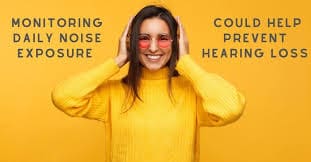Hearing loss with age is not an inevitable part of normal aging but largely represents sociocusis, noise-induced hearing loss from a lifetime of noise exposure. Yes, vascular disease affects hearing, as do ototoxic drugs, ear infections and numerous other factors, but the leading cause of hearing loss with age is noise exposure. It’s time to retire the terms “presbycusis” and “age-related hearing loss” and instead use “sociocusis” or “noise-induced hearing loss in the elderly”.
Why does this matter? Definitions convey meaning. If an unwanted condition that occurs with age is inevitable, there’s no use trying to prevent it. If, however, the condition is easily preventable, it’s probably worth trying. Unlike many conditions common with age- muscle weakness, obesity, hypertension, Type II diabetes, heart disease among them-preventing noise-induced hearing loss is easy and inexpensive. Simply avoid loud noise exposure, leave noisy environments, and if you can’t do that, use hearing protection. Diet, exercise, social relationships and even a little bit of alcohol appear to prolong a healthy functional life reducing the common conditions we tend to see with aging.
The Centers for Disease Control and Prevention (CDC) found that almost 25% of American adults aged 20-69 have noise-induced hearing loss, 53% without significant occupational exposure. Sources of excess noise exposure in everyday life include home appliances, power tools, sound in movies, bars, restaurants, celebrations like birthday parties and weddings, concerts and clubs, sports events, and personal audio systems use. These and noise exposures from many other sources explain the CDC findings.
The best analogy for auditory damage from noise exposure may be skin damage from sun exposure. Noise damages delicate cochlear structures while ultraviolet light in sunlight causes DNA changes in dermal cells, with the cumulative effect termed photoaging: deep wrinkles, pigmentation changes, and skin cancer. Without sun exposure, skin remains smooth and unblemished. With excessive noise exposure, hearing remains undiminished.
What is the evidence that hearing loss isn’t part of normal physiological aging? There have been several studies throughout the years that look at societies that are not exposed to high-level noise. For example, natives of Easter Island who had never left the island had better hearing than islanders who had spent time working on the South American mainland. Girls and women have better hearing than boys and men beginning in the second decade of life, from less exposure to noise from firearms, power tools, and loud music, and then from less occupational noise exposure. Studies show difference in prevalence of hearing loss in different populations, e.g., urban vs. rural, suggesting an environmental factor causes hearing loss rather than just the passage of time.
Making the world quieter won’t be difficult if society has the will to do it, but first we need to understand that hearing loss with age is noise-induced hearing loss, not an inevitable part of normal aging. Noise control at the sources is best- turning down the volume of amplified sound costs nothing.
Hearing Solutions of North Carolina is here to evaluate your hearing (ear-to-brain), help you develop a hearing treatment plan to reduce the cognitive load on your brain, improve hearing ability to maintain social connections. Additionally, we are all about protecting your hearing as well. Let us help you manage this noisy world we live in. Give Jamie or Diane a call at 704-633-0023 to schedule an appointment today. Jane, Cheryl, and I look forward to seeing you soon.

